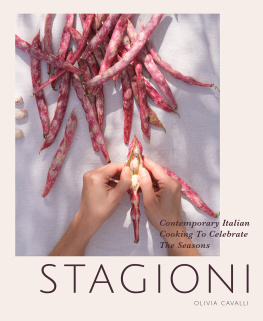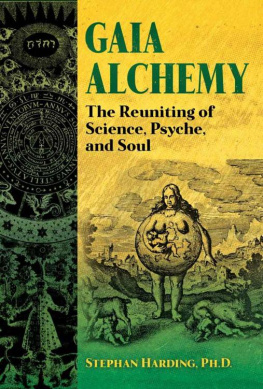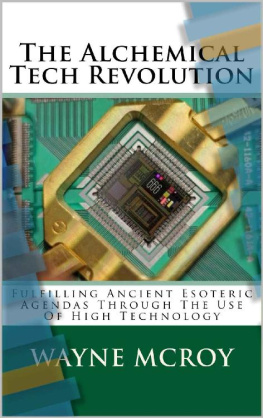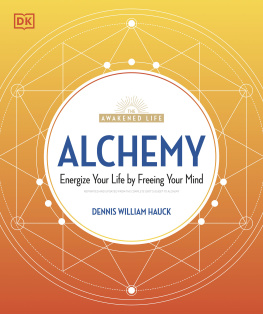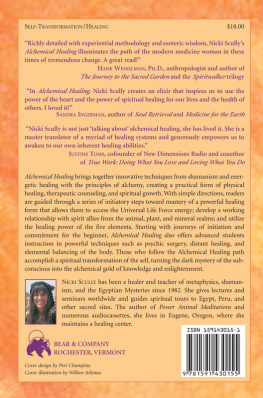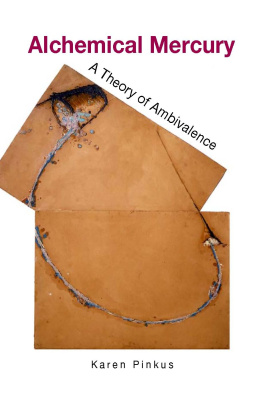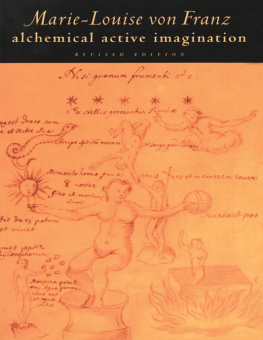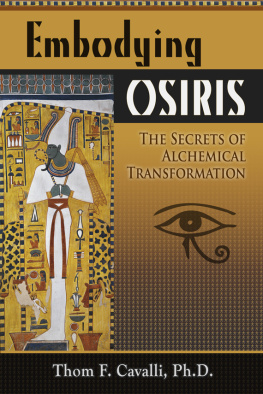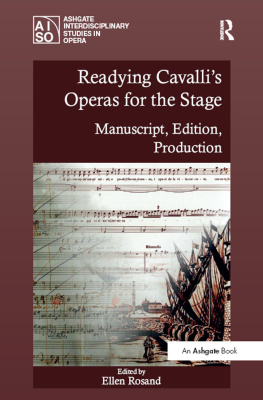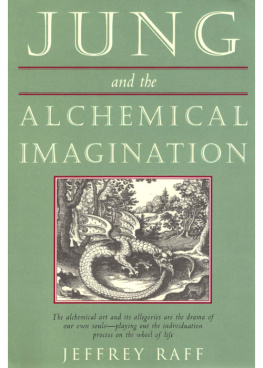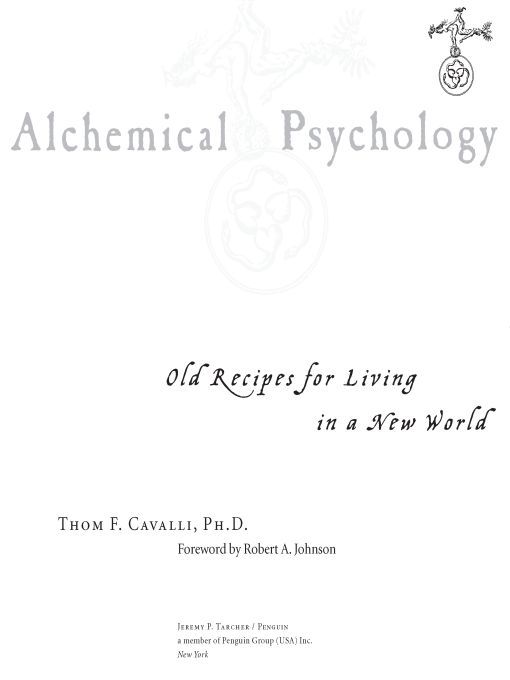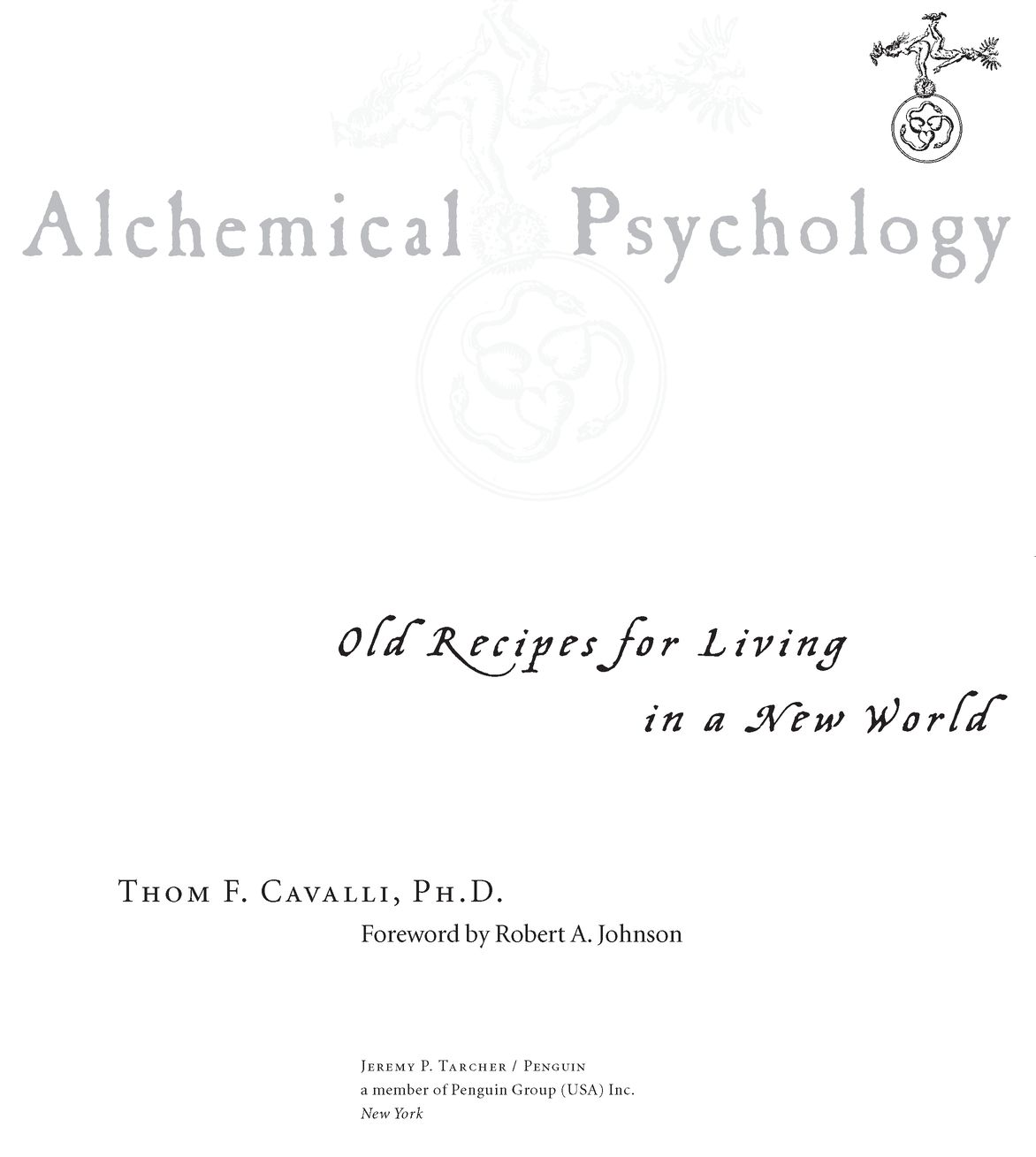Table of Contents
The author gratefully acknowledges permission to use material drawn from The Alchemy of Love in Love Poems of Rumi, translated and copyright 1998 by Deepak Chopra, M.D., published by Harmony Books, a division of Random House, Inc; The Secret Teachings of All Ages (1978) and The Secret Destiny of America (1944) by Manly P. Hall, published and copyright by the Philosophical Research Society; Only Breath, translated and copyright 1997 by Coleman Barks from The Essential Rumi, published by Castle Books, a division of HarperCollins Publishers.
I dedicate this book to my mother,
my daughter, Ananda, and
my soror mystica, Suvasini.
Note on Capitalization
Special use of capitalization is made to denote differences between words having similar meaning. For example, god, nature and mercury are sometimes capitalized in order to distinguish different ways in which each word is used. Generally, a capitalized word indicates that it is being used in a personified rather than literal way. Mercury, using the capitalized form, refers to one of the Greek gods as opposed to mercury, the metal. The capitalized God additionally refers to one deity that is central to monotheistic religions. Capitals are used to discern these differences, not to indicate value of any kind.
Life is a spell so exquisite that everything conspires to break it.
EMILY DICKINSON
Foreword
ROBERT A. JOHNSON
I have spent many years telling stories that teach people, young and old, important lessons about how we mature into complete individuals. These stories are taken from mythology, a subject hardly taught in schools anymore but one that is a treasure-house of wisdom. Myths need retelling especially now that it has become so easy to be distracted from them by computer games, special-effects movies and the tabloid media. These do more to titillate our senses than challenge us in any meaningful way. They stimulate us to excess and rob us of the need to wonder, dwell and actively use our imagination. The old myths are changed every time they are told. One of the oldest myths I know is alchemy; it is a wild adventure story of intrigue and mystery.
Alchemy is a combination of magic, science, religion, mythology and psychology. No one knows its origin and no one can predict its future. Just when you think alchemy has ended it reappears. This has happened at least twice in modern times. In the scientific area, alchemy transformed into chemistry. Much of alchemys lore was discarded with this change. Chemistry is an objective science. Perhaps the magic and mystery of alchemy found its way into psychology. This marked alchemys second reintroduction into modern times. Toward the end of his career, C. G. Jung devoted three major volumes of research to an intensive exploration of the unconscious using alchemy as his model. In these complex works we discover riddles and recipes, signs and symbols, incredible images. Jungs works are no less easy to understand than the formulas found in an advanced biochemistry textbook.
When we try to follow the convoluted logic of alchemy we typically end up in knots. Even in its modern versions, the subject becomes abstract. It is easy to lose sight of the real gold, what alchemy has to do with our everyday experiences. It seems that the student of this ancient practice is either a fool or a very wise person. The author of this book is a bit of a royal fool and a wise alchemist. Above all he is a psychologist, and in a daring attempt to keep our heads from getting lost in the clouds and our feet agile he gives us an accessible guidebook on the royal art. I expect his book will frustrate the rational scientist and annoy some artists. This is how it is whenever we try to capture the awesome beauty of Nature. This book hits us right between the eyes, that place where everything comes together. It is intended for all of us who, wanting it or not, are on a path to wholeness.
Nature pulls us in many directions, causing confusion and contradiction when we try to define her absolute laws. We would like to think that splitting alchemy between chemistry and psychology is the solution. Its not. Each has a hand on the same elephant, describing only a small part of this magnificent beast. The more science delves into the mysteries of nature the more it realizes how much psychology plays a critical role. Of course the converse is equally true: the more psychology peers into matter the more it must rely on objective science to get the whole story. Like the yin-yang symbol, each of the two halves contains a bit of the other. This is the way of alchemy! It returns us back to wholeness.
Today the practice of alchemy seldom involves laboratory work. The wholeness we seek more commonly comes out of psychological labor. The alchemists flask is the vessel of soul, its contents filled with the dualities of conscious and unconscious ingredients. The alchemist is both artist and scientist, using the imaginative mind and the objective psyche. There is no one recipe for the endless mixing, separating, blending and uniting that can guarantee success. Most work is trial and error. Teachers who possess knowledge can help us save time and keep us on track.
In Alchemical Psychology, you will find one such teacher. A wise teacher knows how to present difficult material in an entertaining way. Alchemy can be a confounding subject. It takes effort to grasp its most basic theory and its insightful views of inner life. I thoroughly enjoyed the economical way alchemy is introduced in this book. The major concepts are summarized without doing injustice to alchemical tradition, no small feat. Whats more, the author engages us in a way that gets us thinking differently about alchemy and psychological work.
In reading this book, I found myself entranced by its magic and scholarship. Dr. Cavalli adds the ingredients not found in most books on alchemy. He gives us just enough historical information to excite our imagination without becoming lost in unnecessary detail. He makes alchemy readable, simple and, most important, usable. The book blends the imaginal world with the facts of ancient history and modern science. I am happy that Thom has brought back the royal opus into our lives. He supplies us with an introduction and an approach that enlightens us to the psychological meaning of alchemy. The philosophers stone is not gold, diamond or white light. It is fulfillment. This book is a recipe for finding it.
Discovery
I first truly discovered the presence of fire when flames leapt dangerously close to our home in Staten Island, New York. Although I was only sixteen years old at the time, the fire department was taking on all volunteers regardless of age to fight the blaze. There was a mixture of fear and excitement as they strapped an Indian pump onto my back. I rushed into the forest and squirted water on burning trees and bushes. It wasnt long before I had nearly emptied the small tank on my back and found myself alone, cut off from the others. The flames nearly surrounded me, leaving only a small path for my escape. There was a moment before the panic set in when I felt something I can only describe as awe. At sixteen that word wasnt in my vocabulary and even now its hard to describe the feeling I experienced. All I know is that my head told me to run and some other part of me stopped dead in my tracks and felt awed by the beauty of this fiery hell.


